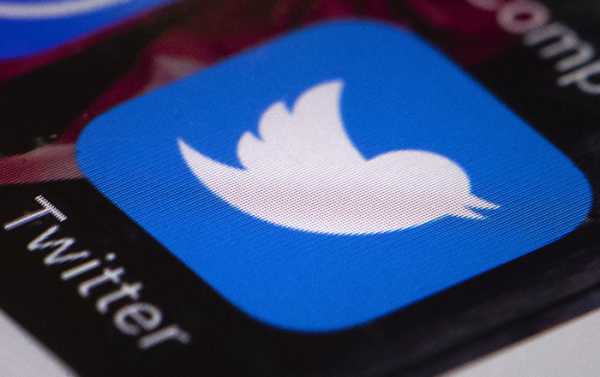
Twitter is limiting the ability of users to search for prominent Republicans, a practice known as “shadow banning,” an exclusive report by Vice revealed Wednesday.
Twitter has long denied that it engages in the practice of shadow banning, although it admitted in a May 15 blog post that it does take measures to combat “troll-like behaviors that distort and detract from the public conversation.”
“Some of these accounts and Tweets [engaging in troll-like behavior] violate our policies, and, in those cases, we take action on them. Others don’t but are behaving in ways that distort the conversation,” Twitter noted in May.
However, it’s unclear what the accounts of prominent Republican Party members like party chair Ronna McDaniel; Republican Congressmen Mark Meadows, Jim Jordan, Devin Nunes and Matt Gaetz; or Donald Trump Jr’s spokesperson Andrew Surabian have done to incur the wrath of Twitter’s anti-troll crusade.
If you search for any of them, their names will no longer auto-populate in the drop-down search box, Vice reported. However, you can still find them if you do a full search, which is somewhat more cumbersome, and the accounts will auto-populate if you already follow the person in question.
Further, the social media platform doesn’t seem to be doing the same to prominent Democratic Party members. Vice noted that liberal parallels to those affected, such as Democratic Party Chair Tom Perez, have not been shadow banned, nor have any of the 78 members of the Progressive Caucus.
Demanding answers, Vice emailed screenshots of the empty drop-down menus to Twitter, illustrating the problem.
A Twitter spokesperson said, “We are aware that some accounts are not automatically populating in our search box and shipping a change to address this.”
“The notion that social media companies would suppress certain political points of view should concern every American,” McDaniel told Vice News in a statement. “Twitter owes the public answers to what’s really going on.”
A spokesperson for Gaetz suggested to Vice that the representative’s account being censored may be retaliation for his “heated exchange with Twitter senior executives before the House Judiciary Committee.” In that interrogation last week, leaders of Facebook, Twitter and YouTube proved unable to justify their claims that Russia (or any other country) had used their platforms to meddle in the 2016 US presidential elections or were continuing to do so, Sputnik reported.
Gaetz, of course, is someone who has crusaded against the independence of media in his own way, including introducing the The Foreign Agents Registration Modernization and Enforcement Act in June 2017, which targeted alternative media sources such as RT and Sputnik by proposing to give the US Department of Justice “the increased investigative authority to identify and prosecute entities that seek to unlawfully influence the political process.” Both news agencies were subsequently required to register as foreign agents under the Foreign Agents Registration Act.
A Twitter spokesperson told Sputnik Wednesday, “We are aware that some accounts are not automatically populating in our search box, and shipping a change to address this. The profiles, Tweets and discussions about these accounts do appear when you search for them. To be clear, our behavioral ranking doesn’t make judgments based on political views or the substance of Tweets.”
Twitter’s product lead, Kayvon Beykpour, had this to say in a Tweet thread:
Although Twitter officials maintain that “we do not shadowban,” as they told Sputnik Wednesday, footage secretly recorded by Project Veritas in January caught a slew of Twitter employees admitting the practice was widespread, Sputnik reported at the time.
This only highlights growing concerns that Twitter’s partisan behavior is reaching editorial levels, turning the social media platform into a publisher.
“Helping to determine credible voices per topic in real-time is extremely challenging,” Twitter CEO Jack Dorsey tweeted July 21, “but believe it’s possible. Mix of algos and network.”
“This isn’t evidence of a pattern of anti-conservative bias since some Republicans still appear and some don’t. This just appears to be a cluster of conservatives who have been affected,” New York Law School professor Ari Ezra Waldman, who testified at the House Judiciary Committee’s April hearing on social media filtering and is the author of Privacy as Trust: Information Privacy for an Information Age, told Vice. “If anything, it appears that Twitter’s technology for minimizing accounts instead of banning them just isn’t very good.”
Changing algorithms to determine which news and opinions people see according to a vague definition of “credible” sure sounds a lot like editing.
Sourse: sputniknews.com






